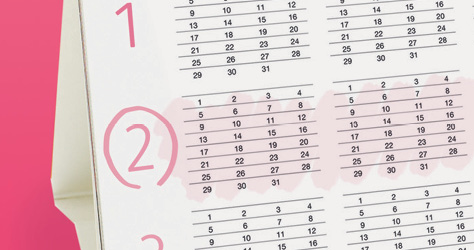What to expect in the second trimester
The second trimester of your pregnancy covers weeks 14 to 26, and involves a whole lot of changes for you and your developing baby.
At a glance
- The second trimester of pregnancy is full of baby kicks and growing bumps
- Morning sickness usually starts to calms down
- You will have antenatal appointments to check both you and your growing baby's health

If you've had morning sickness you should find it easing off now – yay! – as your placenta takes over the production of your pregnancy hormones. You will start to feel your baby moving in the second half of this trimester – or maybe even earlier if it’s not your first pregnancy.
Your changing body shape
Your changing body shape will definitely give you an excuse for a new wardrobe as your baby begins to visibly make its presence known – even if it is one full of maternity jeans and floaty tops!
One piece of clothing you won't want to do without is a well-fitting maternity bra – especially if your breasts are feeling heavy, or if you have already started producing colostrum. Getting professionally measured in store will help prevent sore, uncomfortable boobs as your pregnancy progresses.
If you haven’t already, then you may find that as your baby continues to grow you may start to experience indigestion or heartburn after bigger meals. Speak to your midwife who may advise you on what you can take to help with this. You could try stocking up on the peppermint tea and eating smaller portions more often.
Water retention around this time is normal but it’s important to speak to your midwife if if it is severe or associated with new or unusual headache so they can rule out a condition called pre-eclampsia.
Antenatal appointments
You will be having antenatal appointments with your midwife throughout your second trimester, to check both yours and your growing baby's health. One of the tests you will be offered will be to check for down's syndrome. If you haven't had the combined nuchal scan and blood test at your dating scan, you will be offered a blood screening test for Down's syndrome between weeks 15 and 20 of your pregnancy and a mid-pregnancy anomaly scan around week 20.
Your growing baby
Amazingly, your growing baby will be around 11.5cm by week 16 (about the size of a lemon), and by week 20 will have tiny tooth buds in place – plus you’ll now also be half way through your exciting journey!
Through the rest of the second trimester your little one will continue to grow until they weigh more than the placenta. They will also develop, and be covered in, very fine hair, which to give it is medical term is called lanugo.
It is thought that this is to make sure your baby stays warm, but don’t panic your little one won’t come out all hairy as this usually disappears before they arrive into the world.
Towards the end of this second trimester you should feel your little one moving, and you may find their little sensitive ears respond to loud noises. At this point, experts recommend that you and your partner talk to your baby as they could respond to your voice. Playing them music is also another option, especially if you want them to grow up loving the same tunes as you!
If you are still smoking now is a good time to consider stop smoking options again. If you stop before the 15th week of your pregnancy, the health risks for your baby go down.
It's also a a good idea to keep active in your pregnancy, good for you and your baby and can help to prepare your body for the challenges of labour.